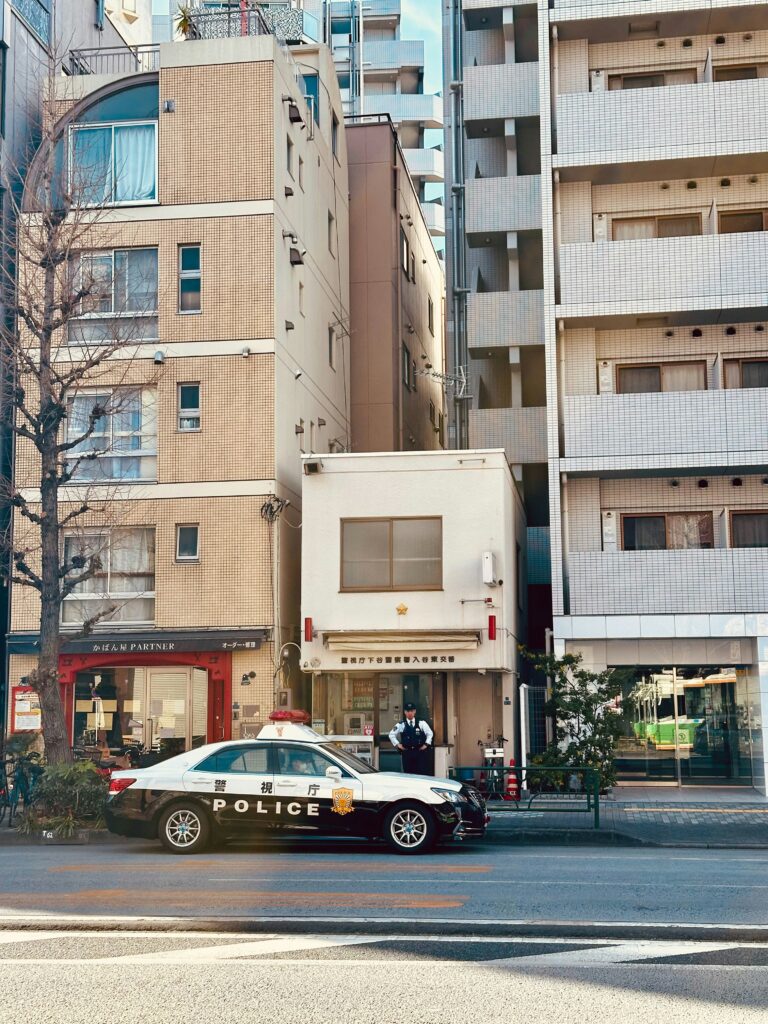I have heard from a few of my international friends that in some countries, people would rather avoid getting involved with the police than seek justice.
In Japan though, you do not have to worry about the police taking advantage of you. Although it can be a hassle reporting a problem because progress can be very slow, police officers are generally quite friendly, serious about helping you, and follow a sound moral code. Below are a few ways you can rely on koban (police stations).

- Asking for directions
You may not expect it but people in Japan probably use koban the most for asking directions. In fact, I have seen police officers assisting several different groups with a map at the koban near Shinjuku Station (a prime spot for getting lost).
- Lost and found
Koban is a hub for lost items. Whether you’ve found or lost an item, the koban is where you should go first. I once lost my phone on my way back from school and ended up finding it at the nearest koban! I felt so grateful to whoever found and delivered it to the koban, but also to the police, for keeping it safe.
- Emergency
If you’re in an emergency situation, you can always run into a koban too. However, police stations are sometimes unmanned due to neighborhood patrol duty, or may look empty (although that may just be because the officers are taking a break in the back room). Whatever the case, if you don’t see an officer, you can pick up the phone on the desk, which will connect you to one.
Overall, the police in Japan are here to help so no need to hesitate when approaching them. In fact, with such little crime in this country, they need you to keep them busy!
